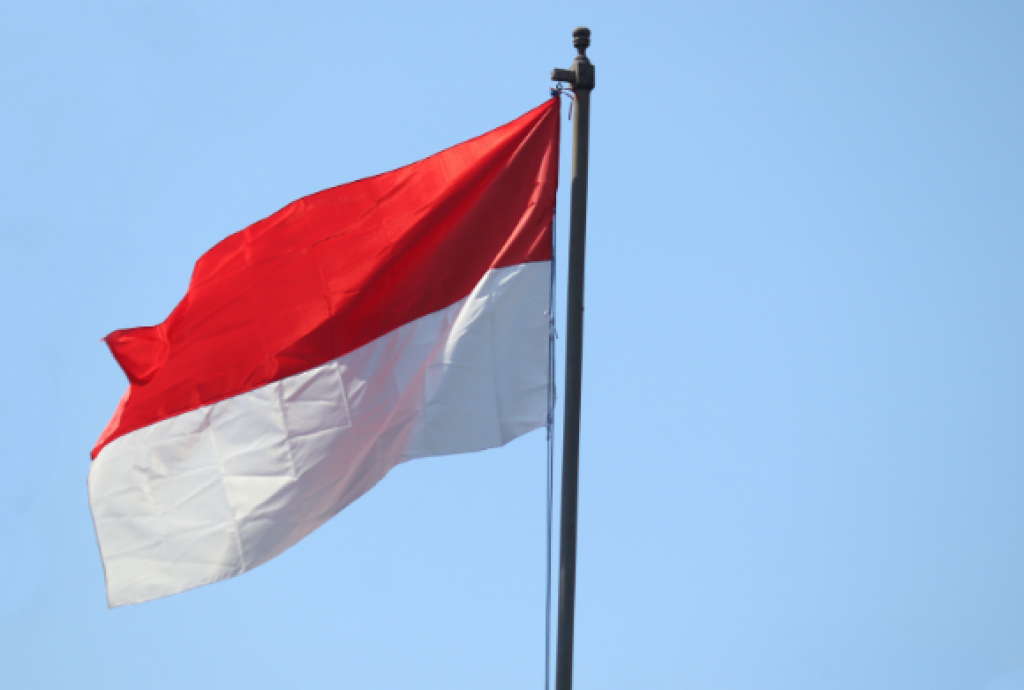
Bali's Hidden Water Temples

Amidst the lush landscapes and vibrant culture, Bali harbors hidden water temples and sacred sites that hold profound significance in the island's spiritual tapestry. Join us on a journey to unveil the secrets of Bali's hidden water temples and discover the spiritual guardians that watch over the island's cultural soul.
Tirta Empul: The Holy Springs of Purity
Nestled in the village of Tampaksiring, Tirta Empul is a water temple renowned for its sacred springs that are believed to possess purifying properties. Pilgrims and visitors alike partake in a ritual bath within the temple's pools, guided by a centuries-old tradition of cleansing the body and soul in the spiritually charged waters. The temple's intricate architecture and the rhythmic flow of its springs create an atmosphere of tranquility and reverence.
Goa Gajah: The Elephant Cave's Subterranean Waters
Goa Gajah, or the Elephant Cave, is an archaeological marvel that hides a sacred bathing pool within its cavernous depths. As you explore the carved stone entrance and the ancient meditation chambers, you'll encounter a hidden pool fed by natural springs. The subterranean waters of Goa Gajah have long been associated with ritualistic bathing, symbolizing purification and spiritual renewal.
Gunung Kawi Sebatu: Balinese Temple Oasis
Nestled in the lush highlands of Sebatu, Gunung Kawi Sebatu is a serene water temple surrounded by tropical gardens. Its holy spring is revered for its crystal-clear waters believed to bring blessings and harmony. The temple's tranquil setting, away from the bustling tourist hubs, offers a contemplative space for visitors to connect with the spiritual essence of Bali.
Pura Taman Ayun: Water Temple of Mengwi Kingdom
Pura Taman Ayun, a royal temple of the Mengwi Kingdom, showcases the architectural brilliance of Bali's water temples. The temple complex features tranquil moats and gardens, with the main sanctum surrounded by lotus-filled waters. The symbolic representation of the cosmic ocean and the temple's role in maintaining spiritual balance make it a hidden gem among Bali's cultural treasures.
Saraswati Temple: Lotus Bloom Amidst Ubud
Ubud's Saraswati Temple, dedicated to the goddess of knowledge and the arts, stands as a testament to Bali's artistic heritage. The temple is adorned with lotus ponds, and its intricate stone carvings reflect the island's devotion to culture. Saraswati Temple is not just a place of worship; it is a sanctuary where the arts and spirituality converge in a harmonious dance.
Pura Mengening: The Sacred Spring of Secrets
Tucked away in the village of Tampaksiring, Pura Mengening is a lesser-known water temple revered for its serene atmosphere and a sacred spring believed to have mystical properties. The temple's ancient stone structures and the soothing sound of flowing water create an ambiance that invites contemplation and introspection.
Balinese Subak System: Sacred Water for Rice Terraces
While not a traditional water temple, the Subak system of water irrigation is a sacred practice deeply intertwined with Bali's spiritual and agricultural identity. This subak system, recognized as a UNESCO Cultural Landscape, symbolizes the harmonious relationship between water, rice terraces, and the spiritual connection the Balinese people have with their land.
Air Panas Banjar: Hot Springs Amidst Tropical Surroundings
Located near Lovina, Air Panas Banjar is not your typical water temple, but it holds a unique charm with its hot springs believed to have healing properties. Surrounded by lush tropical vegetation, the sulfuric waters create a natural bathing experience that reflects Bali's connection to the healing energies of its landscapes.
Sekumpul Waterfall: Nature's Temple of Cascading Waters
Sekumpul Waterfall, though not a traditional water temple, is a natural wonder that mirrors the sacredness attributed to water in Balinese culture. Surrounded by lush jungle and accessed through a trek, Sekumpul captivates with its majestic cascade, offering a refreshing and immersive encounter with the natural elements that inspire spiritual reverence.
The Spiritual Essence of Bali's Hidden Water Temples
In the heart of Bali's hidden water temples, a profound spiritual essence unfolds. Beyond the physical structures and natural springs, these sacred sites embody the island's belief in the interconnectedness of nature, spirituality, and the daily lives of its people. As you explore these hidden gems, you embark on a journey into the soul of Bali, where the sacred waters weave a tapestry of harmony that transcends time and space.
In conclusion, Bali's hidden water temples stand as guardians of spiritual harmony, offering a glimpse into the island's deep-rooted connection with the sacred elements of water and nature. Each temple, with its unique rituals and enchanting settings, invites visitors to experience the timeless magic that defines Bali's cultural and spiritual identity.
Bali's Hidden Water Temples
Table of Content- Tirta Empul: The Holy Springs of Purity
- Goa Gajah: The Elephant Cave's Subterranean Waters
- Gunung Kawi Sebatu: Balinese Temple Oasis
- Pura Taman Ayun: Water Temple of Mengwi Kingdom
- Saraswati Temple: Lotus Bloom Amidst Ubud
- Pura Mengening: The Sacred Spring of Secrets
- Balinese Subak System: Sacred Water for Rice Terraces
- Air Panas Banjar: Hot Springs Amidst Tropical Surroundings
- Sekumpul Waterfall: Nature's Temple of Cascading Waters
- The Spiritual Essence of Bali's Hidden Water Temples
Topic Categories
- All 364
- Uncategorized 6
- Bali Villa 32
- Bali Politics 6
- Bali News Update 7
- Bali Shopping 3
- Bali Tourism 49
- Bali Spirituality 2
- Bali Beauty and Fashion 0
- Bali History and Culture 23
- Bali Property Appraisal 1
- Bali Property Financing 3
- Bali Property Insurance 1
- Bali Property Management 5
- Bali Environment 11
- Bali Pets 2
- Bali Health and Wellness 17
- Invest in Bali 23
- Bali Local Services 6
- Bali Food & Dining 12
- Bali Home Improvement & Design 6
- Bali Legal Tips 8
- Bali Neighborhood Guides 11
- Bali Property Market Trends 15
- Bali Property Advice 60
- Bali Attractions 25
- FAQ 2
- Living in Bali 46
Topic Tags
- All 364
- Uncategorized 36
- Villa for sale Umalas 3
- Villa for sale Kerobokan 3
- Villa for sale Oberoi 3
- Villa for sale Pererenan 3
- Villa for sale Batu Bolong 3
- Villa for sale Berawa 3
- Villa for sale Sanur 3
- Villa for sale Seminyak 3
- villa for sale Ungasan 3
- villa for sale Jimbaran 3
- villa for sale Nusa Dua 3
- villa for sale Pandawa 3
- Kerobokan 3
- Bali market report 3
- Villa for sale Canggu 5
- Villa for sale Uluwatu 5
- Bali Rentals 3
- Buying Process 6
- Labuan Bajo 0
- Bali Hospital 3
- Bali School 3
- Bali Beach 12
- Co-working Space 4
- Petitenget 3
- Australia 0
- China 2
- Bali Wedding 1
- Bali Flights 4
- Retire in Bali 6
- Nyepi 2
- Bali Villa Sale 20
- Bali Visa 5
- Bali Travel 28
- Villa Rental 9
- Airbnb 0
- PT PMA 3
- Bali Zoning Law 1
- Bali Tax 3
- Bali Property 54
- Double Six 0
- Sunset Road 0
- Nyanyi 3
- Legian 4
- Beach Club 6
- Oberoi 3
- Batu Bolong 4
- Batu Belig 3
- Business 4
- Legal 11
- Investment 41
- Tourism 65
- Travel 24
- Jimbaran 8
- Denpasar 2
- Seseh 5
- Eid al Adha 1
- Ascension Day 0
- Easter 0
- Vesak 0
- Islamic New Year 0
- Eid al-Fitr 1
- International Labor Day 0
- Independence Day 2
- Day of Silence 0
- Galungan Day 1
- Valentine 2
- Christmas 5
- New Year 4
- Lunar New Year 2
- Bali Market Trends 14
- Bali Art & Culture 18
- Bali Home Design 9
- Bali Health & Wellness 18
- Bali Food and Dining 15
- Bali Pets 3
- Bali Lifestyle 44
- Rice Field Front 1
- Jungle View 1
- River Front 0
- Rice Field View 6
- Ocean View 4
- Private Pool 0
- Fix and Flip 1
- Fixer-Upper 0
- Hotel & Resort 3
- Guest House 0
- Street Front 0
- Residential Zone 0
- Touristic Zoning 0
- Freehold 4
- Long Lease 8
- Short-Term 1
- Minimalist Villa 0
- Luxury Villa 13
- Turnkey Villa 3
- Residential Complex 0
- Exclusive Listing 1
- Off-Plan Property 4
- Studio 0
- Loft 0
- Apartment 8
- Villa 16
- Land 6
- Beachfront 4
- Family Villa 1
- Retirement Villa 2
- Investment Villa 34
- Digital Nomad 2
- Commercial Property 4
- Eco-friendly 0
- Contemporary Style 0
- Modern Style 1
- Javanese Style 0
- Rustic Style 0
- Traditional Style 0
- Bohemian Style 0
- Mediterranean Style 1
- Balinese style 1
- Nusa Penida 3
- Lombok 1
- Gili Island 3
- Amed 2
- Tabanan 9
- Cemagi 4
- Nusa Dua 9
- Sanur 7
- Umalas 7
- Berawa 6
- Ubud 12
- Tanah Lot 3
- Kuta 8
- Pererenan 6
- Uluwatu/Bukit Peninsula 33
- Seminyak 15
- Canggu 39
Relevant Articles you may like
Map
Send an Enquiry
Property Search
Sell/Rent My Property
Please fill this form and our listing agents will contact you to visit your property and/or give you a price valuation








